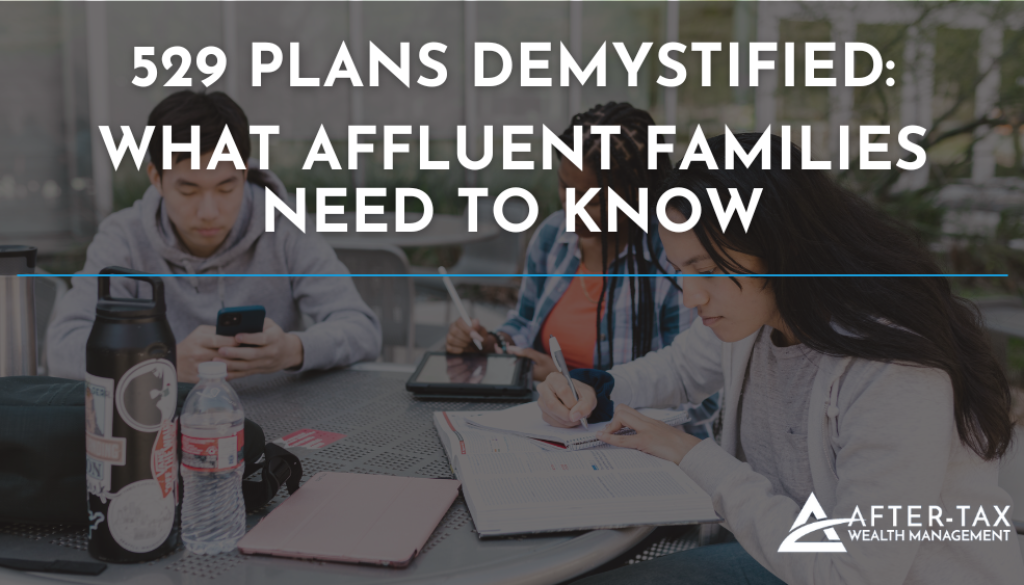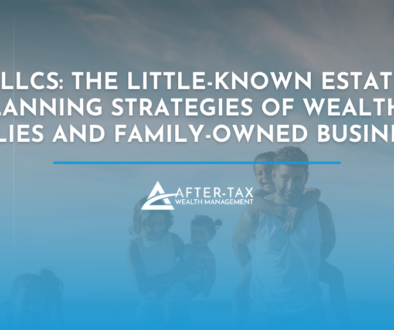529 Plans Demystified: What Affluent Families Need to Know
As an affluent family, planning for your children’s education is likely a top priority. You want to ensure that they have access to the best education possible without worrying about the high cost of tuition; this is where 529 plans come into play. However, with so much information, understanding these plans and how they benefit you is essential. That’s why we have demystified 529 plans and compiled this guide to help affluent families make informed decisions.
What is a 529 Plan?
A 529 plan is a tax-advantaged savings plan designed specifically for education expenses. Congress voted to create 529 plans in 1996, and now every state offers at least one type of 529 plan. There are two types of 529 plans: pre-paid tuition and education savings. The main difference between the two is how they are invested and distributed.
Pre-paid tuition plans
Pre-paid tuition plans allow you to purchase college credits at today’s prices, which you can later use towards tuition at participating colleges.
Education savings plans
Education savings plans allow you to contribute money towards a college savings account for future education expenses. They can offer various investment options such as stocks, bonds, and mutual funds.
Benefits of 529 Plans
One of the main advantages of 529 plans for affluent families is the tax benefits they offer. Contributions to the plan are not federally taxed, and some states also offer tax deductions or credits for contributions. All earnings grow tax-free, and withdrawals for qualified education expenses are tax-free.
Another benefit is the flexibility of the plans. Unlike other education savings accounts, 529 plans have no income limitations, so even high-income families can contribute. You can also change the plan’s beneficiary if your child does not attend college or receives a full scholarship. Furthermore, these plans can be used for both undergraduate and graduate education expenses, giving you more options.
529 Plan limitations
Before investing in a 529 plan, it is essential to understand its limitations. These plans have contribution limits, and any amount exceeding the limit may be subject to gift taxes. Additionally, withdrawals not used for qualified education expenses may be subject to income tax and a 10% penalty.
Another important consideration is the impact of a 529 plan on financial aid eligibility. While it is an asset owned by the parent, it affects the Expected Family Contribution (EFC) and may impact the child’s financial aid.
529 Plans as a wealth transfer strategy
By using a 529 plan as a wealth transfer strategy, families can save for future education expenses and help ensure a financially independent future for their descendants. It’s essential to consult with financial and tax professionals before utilizing a 529 plan as part of a comprehensive wealth transfer strategy.
Parent contributions
One of the benefits of a 529 plan is that there are no annual contribution limits, and parents can contribute consistently over time, maximizing the account’s growth potential.
Grandparent contributions
In 2024, a grandparent can gift up to $18,000 per year, $36,000 per couple, per beneficiary without incurring gift taxes. By contributing directly to a 529 plan, grandparents can transfer wealth to their grandchildren without incurring taxes when receiving the gift.
Unused 529 plan monies
If a child or grandchild has the remaining 529 plan monies, they can be transferred to a Roth IRA for retirement savings or emergency expenses. A Roth IRA is another tax-advantaged retirement account offering more flexibility and a comprehensive range of investment options. However, some IRS rules impact how much can be transferred from a 529 plan to a Roth IRA without penalties:
- The 529 plan must be open for at least 15 years.
- A $35,000 lifetime limit on 529 transfers applies.
- 529 plan contributions and earnings on those contributions made in the last five years cannot be transferred to a Roth IRA.
- The transfer must be direct, or custodian to custodian.
529 plans may be appropriate for affluent families to save for their children’s education expenses and as a wealth transfer strategy. However, weighing the pros and cons and consulting with financial and tax professionals before establishing a 529 plan or using it as a wealth transfer strategy is crucial.
Important Disclosures:
Prior to investing in a 529 Plan investors should consider whether the investor’s or designated beneficiary’s home state offers any state tax or other state benefits such as financial aid, scholarship funds, and protection from creditors that are only available for investments in such state’s qualified tuition program. Withdrawals used for qualified expenses are federally tax free. Tax treatment at the state level may vary. Please consult with your tax advisor before investing.
All information is believed to be from reliable sources; however, LPL Financial makes no representation as to its completeness or accuracy.
This article was prepared by Fresh Finance.
LPL Tracking #552474
Sources:
https://www.cnn.com/cnn-underscored/money/529-to-roth-ira




